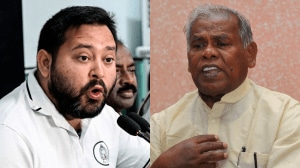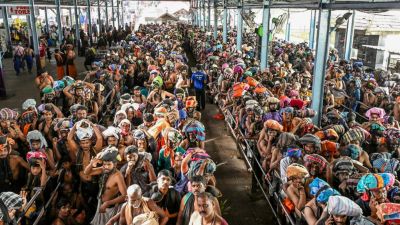Click here to join Express Pune WhatsApp channel and get a curated list of our stories
Time to lead on non-communicable diseases; why governments must scale up funding
The report looks at how much governments are spending on essential NCD medicines and services. The analysis offers compelling evidence to inform health budgets so that they better match health burdens and patient needs.
 As part of the Global Week for Action against NCDs an open letter has been sent to world leaders where several organisations across India and other countries have said that the burden NCDs is unacceptable, inequitable, and increasing.
As part of the Global Week for Action against NCDs an open letter has been sent to world leaders where several organisations across India and other countries have said that the burden NCDs is unacceptable, inequitable, and increasing.
With just two weeks to go until the fourth UN high-level meeting on non-communicable diseases (NCDs) and Mental Health (HLM4), civil society is urging governments to show leadership and step up investments to tackle the world’s leading health challenges.
The NCD Alliance’s ‘Time to Lead’ campaign urges countries to prioritise NCDs including mental health and neurological conditions, close the financing gap and deliver bold commitments at the HLM4 taking place on September 25.
As part of the Global Week for Action against NCDs an open letter has been sent to world leaders where several organisations across India and other countries have said that the burden NCDs is unacceptable, inequitable, and increasing.
“NCDs such as diabetes, cancer, cardiovascular diseases, chronic respiratory conditions, neurological conditions, and mental illnesses, are the leading cause of death and disability worldwide,” the letter states urging governments to fulfill their commitments and address the burden of NCD.
NCD Alliance’s new report, “Delivering on Health and Financial Protection for All: Government Spending on Essential NCD Medicines and Services,” that was released on Wednesday shows that countries are dangerously underspending on NCDs and outlines how much they must invest to get on track and save lives.
To achieve universal coverage and provide financial protection for NCD interventions, countries should aim to spend 1.1% to 1.7% of gross national income (GNI) on NCDs through their primary healthcare. “Currently, most countries invest just 0.26% to 0.46% of GNI —highlighting decades of chronic underfunding, ”Dr David Watkins, lead author of the report, told reporters at a virtual conference held on Wednesday.
The report looks at how much governments are spending on essential NCD medicines and services. The analysis offers compelling evidence to inform health budgets so that they better match health burdens and patient needs.
“Among the findings is that a significant share of government spending on NCDs goes to medicines and the report highlights opportunities to reduce these costs to stretch budgets further,” Watkins said. The report shows the wide variation in medicine prices across countries, and models potential cost-savings of 20% to 50% if the best prices were available globally. “It’s not just about increasing investment but about making health budgets go further.”
Nupur Lalvani, Pune based founder of Blue Circle Diabetes Foundation and who has been living with Type 1 diabetes since the age of 8, told reporters at the virtual conference that this was a critical moment. “People with NCDs around the world are speaking with one voice: we know what works—and so do governments,” Lalvani added.
She also urged that what is needed is greater government investment in NCDs especially in low and middle income countries like India. “It is cheaper to invest in prevention/treatment rather than treat medical complications,” Lalvani added– She also stressed that strong collaborations between governments, multilateral organisations, civil society and patient advocacy groups with lived experience is critical.
“An example was the recent decision by the World Health Organisation to add rapid-acting insulins and GLP-1 therapies to the Essential Medicines List. Now India must quickly include these in the National List of Essential Medicines and not repeat the two year delay we saw after long-acting insulin was added in 2021. What people living with diabetes and other NCDs need most is financial protection and timely access to affordable medicines and services so that global policy translates into real relief for families on the ground,” Lalvani told The Indian Express.
Click here to join Express Pune WhatsApp channel and get a curated list of our stories








